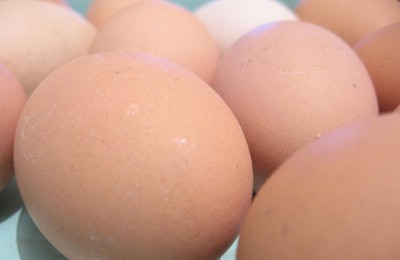
At the annual meeting in January, members of the Jamaica Egg Farmers Association (JEFA) welcomed the news of a promised removal by the government of the General Consumption Tax (GCT) levied on eggs.
Several factors were blamed for an operating loss of JM$4.2 million (US$31,000) suffered by the sector in 2018, including oversupply in the market, low prices, high costs, and the GCT.
Association president, Roy Baker, said that an egg glut in the middle of last year pushed prices down to their lowest level in 10 years — well below the cost of production — reports Jamaica Gleaner. At the same time, a sharp devaluation in the Jamaican dollar pushed up the prices to producers of vital imported inputs that include layer feed and replacement pullets. Average costs rose to JM$275 (US$2.06) per dozen eggs.
Reacting to the situation, producers cut back production by between 30 and 50 percent, according to Baker.
The glut situation was relieved and the market situation stabilized after Jamaica exported eggs to Trinidad, he said on a radio program from the government-run Jamaica Information Service.
Levied on eggs since 2012, Baker told RJR News that the GCT had created disparity in the egg market, and discouraged domestic production of this affordable and nutritious food. Small farmers are exempt from paying the tax, and so they would undercut commercial egg farmers on the market. This led to a downward spiral in egg prices in Jamaica.
The Standard Rate for GCT in Jamaica is 16.5 percent. The government has not yet given a timeline for the removal of GCT on eggs.
On behalf of its 100-strong membership, JEFA had been lobbying the government hard for the tax to be lifted last year, its secretary, Cheryl McLeod, told Jamaica Gleaner. Association members produce around 60 to 70 percent of the country’s demand for eggs, according to McLeod.
Shell egg production in the Caribbean state has risen from 5,800 metric tons (mt) in 2000 to an unofficial figure of 9,936 mt in 2017, according to the latest figures from FAOstat, the statistics arm of the United Nations’ Food and Agriculture Organization. Over the same period, the number of eggs produced annually in Jamaica has risen from 107 million to almost 181 million, while the laying hen population has expanded from 972,000 to 1.55 million birds.

















